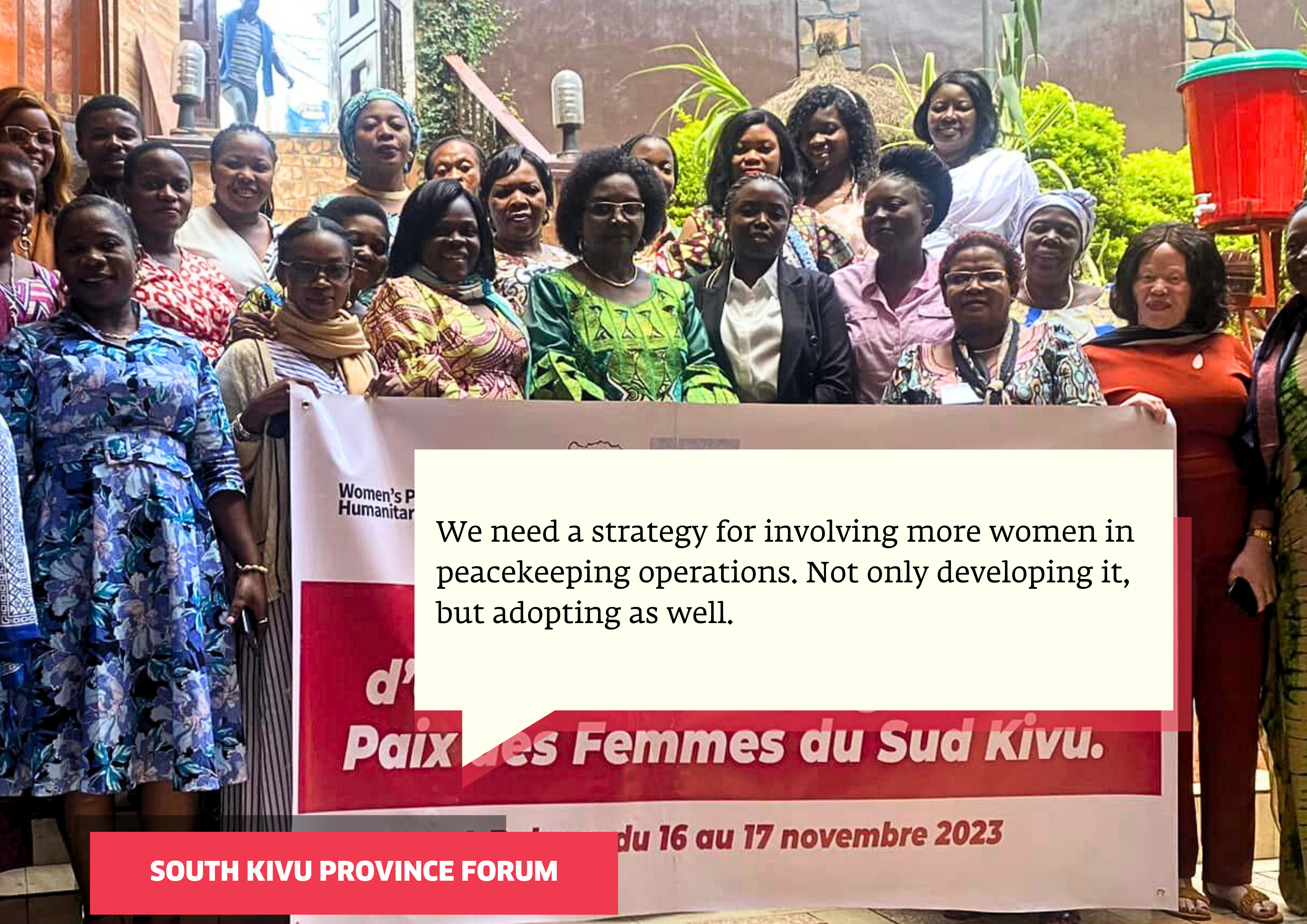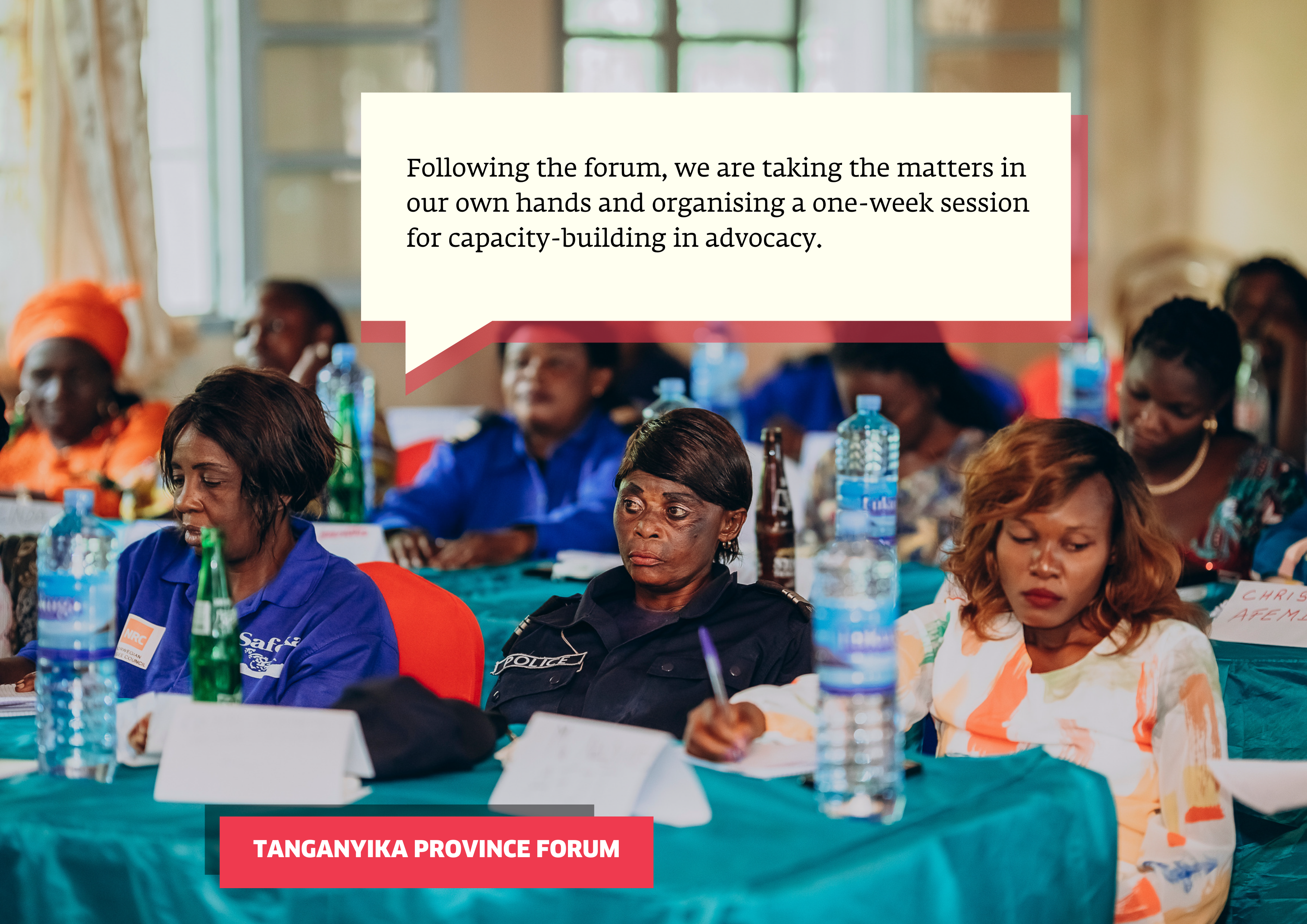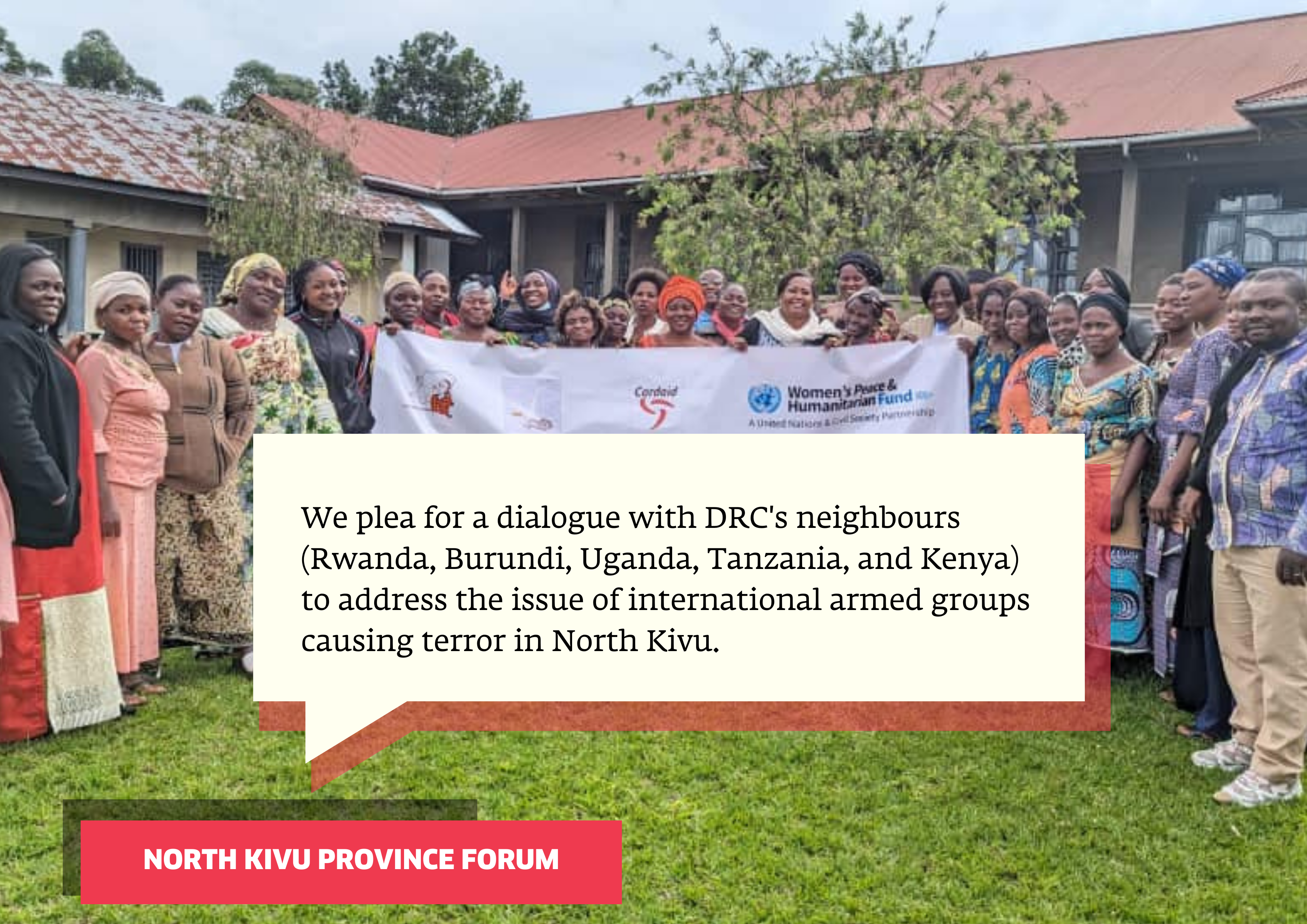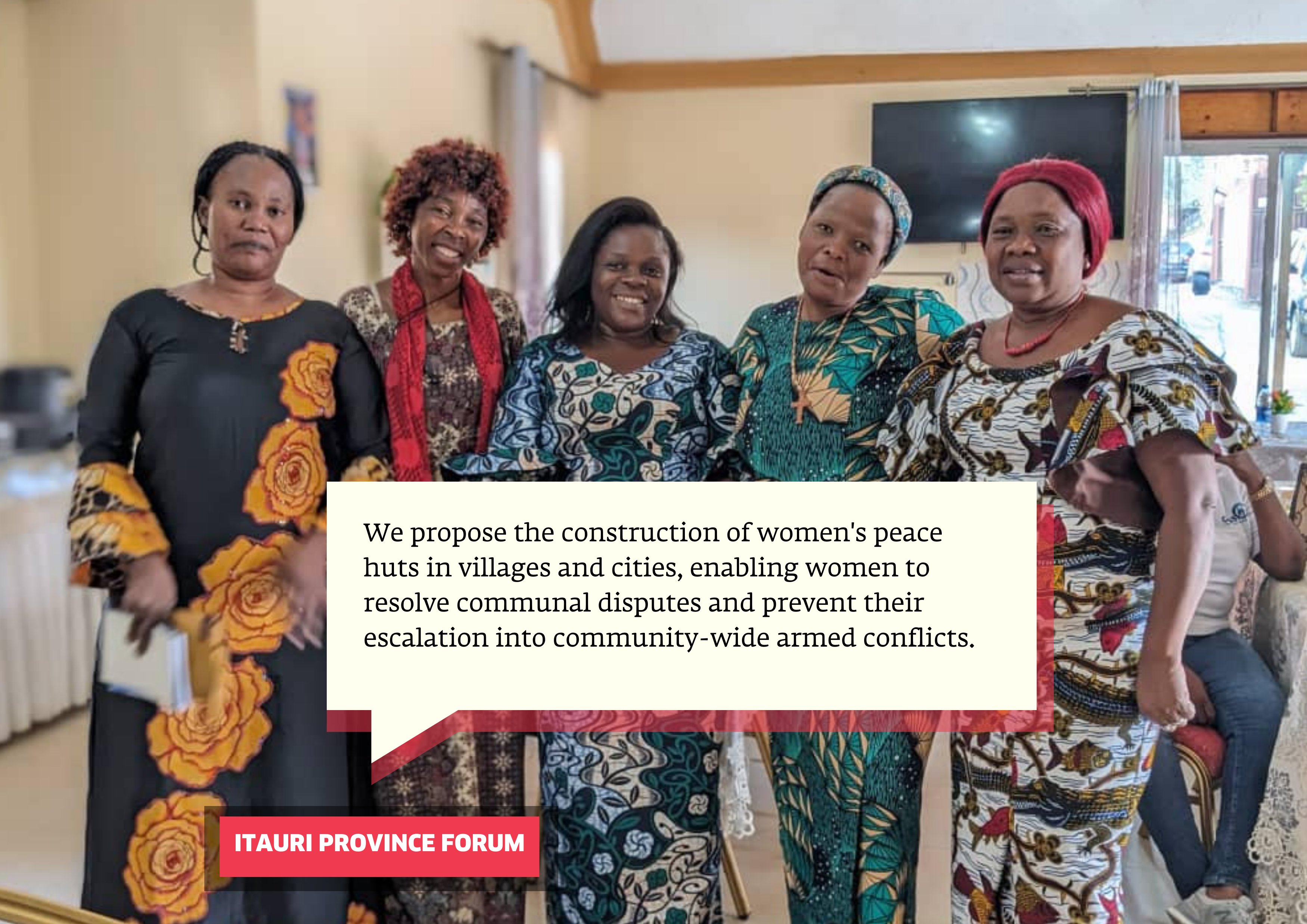The recent attacks on refugee settlements in Goma show the worrying escalation of the conflict in the Democratic Republic of the Congo. It also underscores the urgency and need to involve women in peace processes. Women from five affected provinces are raising their voices, demanding a more significant role in peace negotiations.
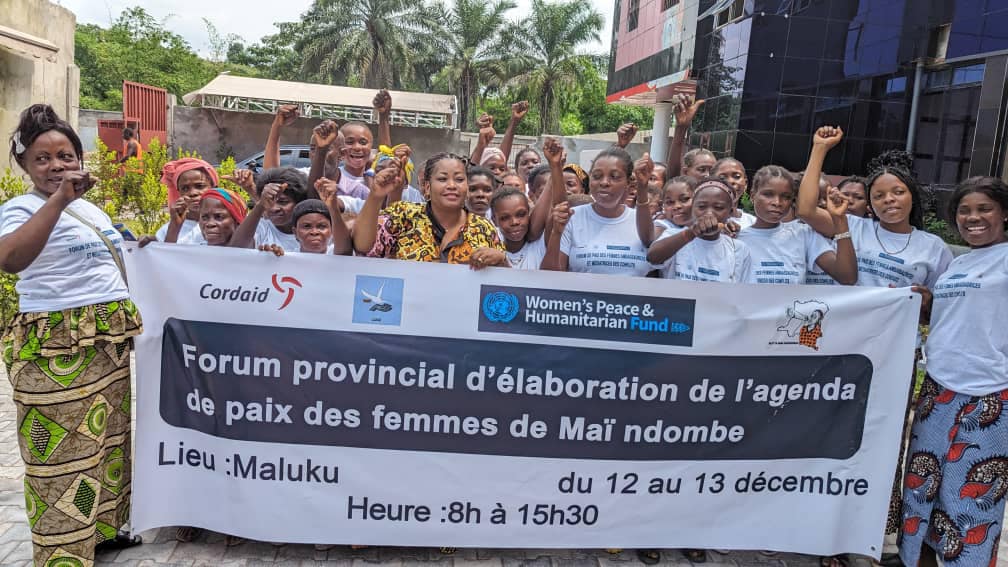
The Sauti Ya Mama Mkongomani platform and the Collectif des Associations Féminines (CAFED), have organised several forums in partnership with Cordaid and supported by the United Nations Women Peace Humanitarian Fund.
The gatherings offered a stage to 175 female ambassadors and mediators, bringing together women from varied backgrounds, marginalised groups, political leaders, and women’s organisations.
Grassroots
Participant Caddy Adzuba highlights the importance of understanding the experiences of women survivors of conflict to develop functional peacebuilding mechanisms: ‘We must focus not only on women in leadership positions but also on those at the grassroots level. This will allow more women to become ambassadors and mediators in the DRC’s peace process, ensuring their voices are influential.’
The impact of the conflicts on women and girls has been particularly harsh, exposing them to sexual and gender-based violence. Yet, they have often been sidelined from the peace talks.
Women have, however, historically played crucial roles in peace processes. During the 2002 talks in Sun City, for example, which helped end the Second Congo War and set up a new government.
Principal recommendations per province
Participants from North Kivu, South Kivu, Ituri, Tanganyika, and Mai-Ndombe shared their insights and crafted action points specific to the context of each province. While the recommendations vary across regions, they reflect the collective vision of Congolese women for peace.
Slide through the image gallery to see the quotes of the participants:
